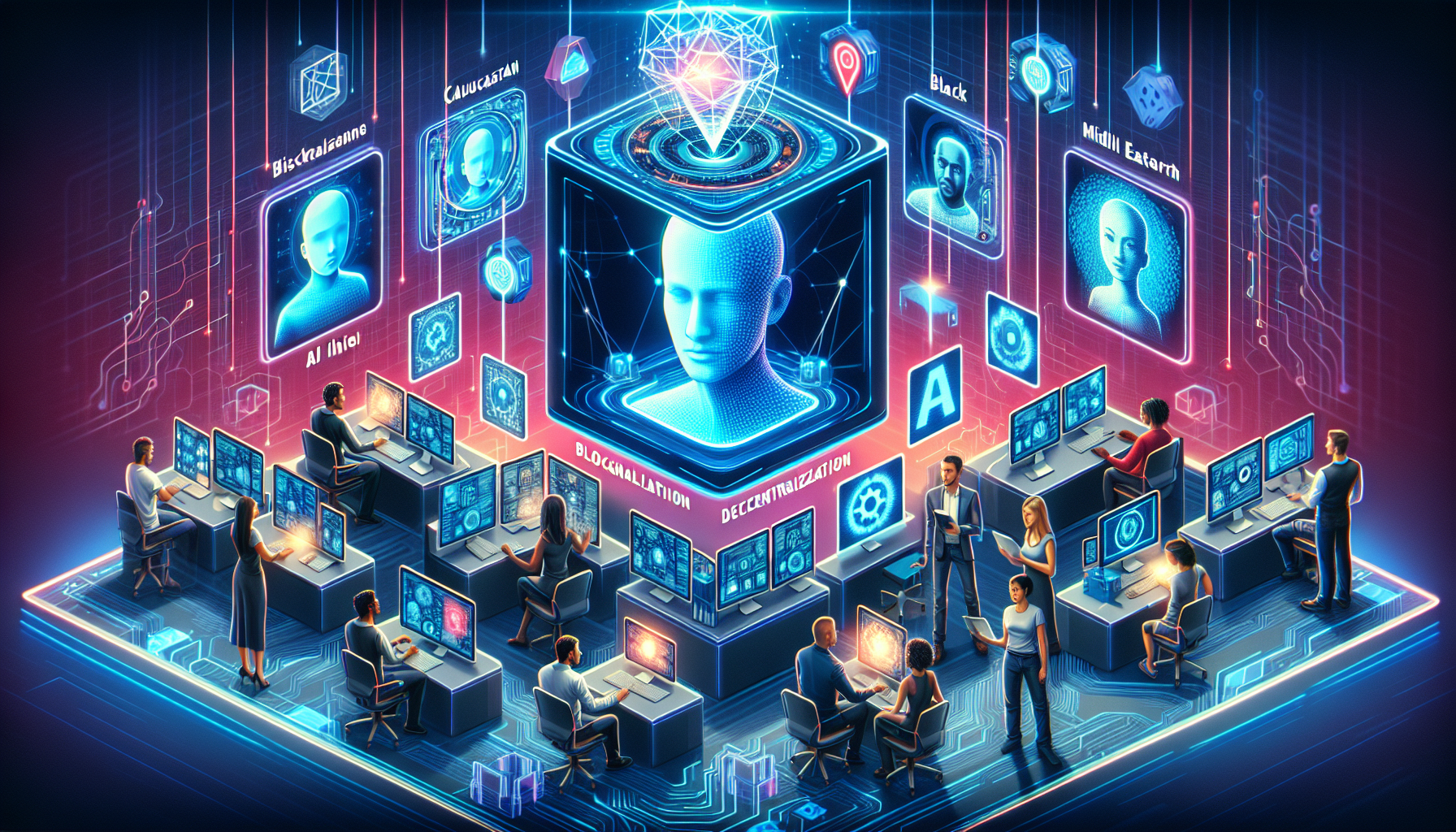Blockchain: The Catalyst for AI's Evolution in 2025
Introduction
As we stand on the brink of a technological revolution, 2025 is poised to be the year when artificial intelligence (AI) becomes more user-friendly, thanks to the integration of blockchain technology. This article explores how decentralization, enabled by blockchain, could empower both developers and users, transforming AI into a more inclusive and dynamic technology.
Decentralization: A Necessity for AI's Healthy Growth
AI has captivated the global imagination with its potential to revolutionize industries, armed with a market forecast expected to soar to over $1.3 trillion by 2030. Yet, despite its promise, the current trajectory of generative AI development remains steeped in a centralized model. This framework excludes crucial stakeholders—developers and users—leaving them without a voice, stake, or ownership in the development process.
Decentralizing AI application and agent creation can break away from this model, allowing users and developers to co-own and actively participate in AI's growth. Such a shift will likely lead to a more personalized, innovative AI ecosystem by 2025.
The Current State of AI Applications
In today's fast-paced world, with more than half of the global population owning a smartphone, the potential for AI-driven personalization is massive. However, the current ecosystem is plagued by concerns such as data privacy risks, political bias, and misinformation. Furthermore, AI developers often find themselves limited to models from large, centralized entities, stifling innovation.
Why Decentralization is the Solution
Centralized models have erred by excluding developers and users, building AI technologies behind closed doors. In contrast, a decentralized approach would involve a transparent network, potentially powered by blockchain. This structure could provide affordable, secure, and open development environments, while minimizing the risks associated with centralized data storage.
By employing blockchain technology, community members could leverage value-based rewards for their data contributions, encouraging active participation. This approach would ensure data is utilized ethically and securely, preventing the kind of breaches that have plagued centralized systems.
A Look Ahead: The Future of AI
The idea of democratizing AI development is not just a theoretical exercise but a practical necessity for sustainable growth. Through decentralized networks, AI can tap into high-quality human knowledge and private data, yielding applications that dramatically enhance productivity, communication, and user engagement.
From personalized health advice to financial planning and style recommendations, the possibilities for AI applications are vast when the technology is developed collaboratively and transparently. By 2025, the potential for such developments to enhance our daily lives through informed, secure, and personalized AI interactions is limitless.
Conclusion
In embracing a decentralized approach to AI development, stakeholders can ensure that technology evolves in a way that values and rewards all participants. By prioritizing user privacy and developer engagement through blockchain, AI can truly become friendly for everyone in 2025.
This synergy not only promises to revolutionize the AI landscape but also to lay the foundation for a more inclusive, dynamic future.

